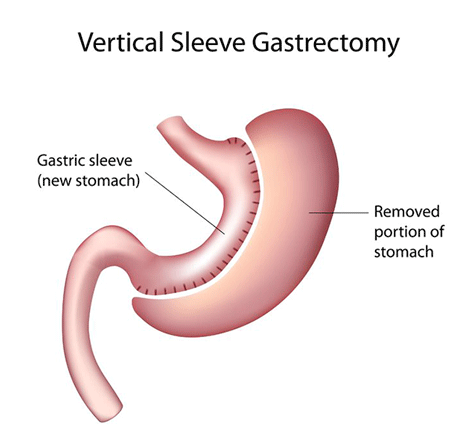
Obesity in India is defined as body mass index [BMI: Weight (kg)/ Height (m)2] more than 27.5 kg/m2 (normal BMI is between 18 to 23 kg/m2) and people with BMI more than 32.5 kg/m2 and 37.5 kg/m2 are defined as severely obese and morbidly obese respectively. Obesity is a chronic disease with accumulation of excessive body fat and subsequent risk for development of medical conditions like diabetes mellitus (DM), hypertension (HT), obstructive sleep apnoea (OSA), degenerative joint disease, hyperlipidemia (HPL), hyperuricemia, fatty liver, depression, polycystic ovarian disease (PCOD) and asthma to name a few. Thus obesity adversely affects all the organs and lead to constellation of symptoms referred to as Metabolic Syndrome of Obesity. People with morbid obesity (BMI > 37.5 kg/m2) have 50% to 100% higher mortality rates. There is also emotional effect of obesity where obese patient suffers neglect from society and thus are prone to develop mental symptom like depression, anxiety and eating disorders. So Bariatric surgery or weight loss surgery or metabolic surgery is a life style modification surgery which not only reduces weight but through its hormonal effect it cures/ controls the medical conditions associated with it. Its effect on glucose control and other metabolic problems is striking, which can be seen soon after the procedure and even before there is significant reduction in weight.
Bariatric surgery is indicated if a patient is morbidly obese (BMI > 37.5 kg/m2) or severely obese (BMI > 32.5 kg/m2) with seriously related diseases like DM, HT, OSA and others as explained above. It can be safely done in patients between 18 to 65 years of age who have failed weight loss alternatives like dieting, exercise and behavior modification programs and who are committed to healthy life style. The patient not only reduces extra fat but many obesity related conditions like Diabetes, high blood pressure, sleep apnea, heart diseases are resolved or significantly improved. PCOD and resulting infertility is also greatly improved. Patient can become pregnant after 18 months to 2 years after surgery and Overall quality of life is improved in 95% of patients and mortality is reduced in 89% of patients.
There are various ways for doing bariatric surgery like Sleeve gastrectomy which restricts the food intake and Gastric Bypass (Roux- en-y and Mini Gastric Bypass) which also limits the absorption of ingested food. All the bariatric surgeries are done laparoscopically by making several small incisions (4 to 6) ranging from 5 to 15mm, through which the surgeon inserts laparoscopic instruments to perform the surgery. Patients usually go home two to three days after surgery.







